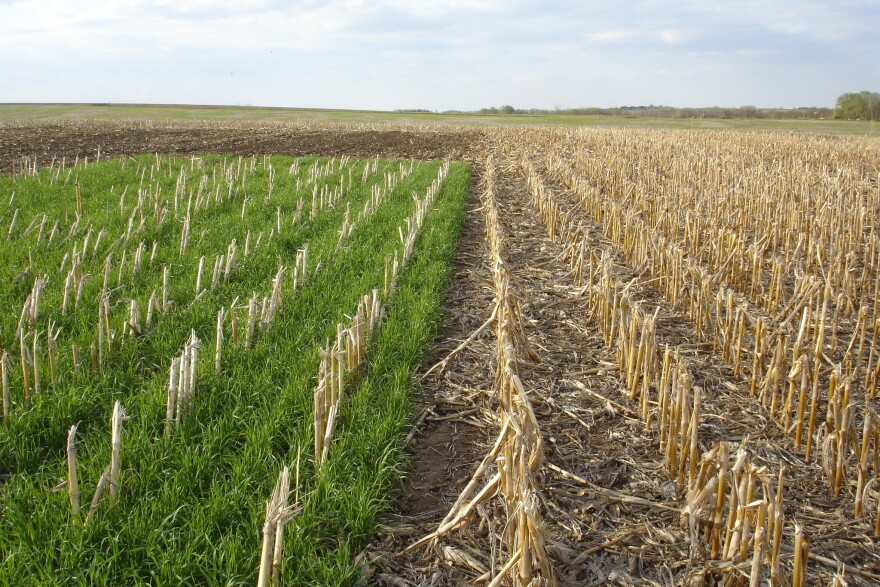Reducing tilling, cover crops and fertilizer management are proven strategies for reducing the erosion and carbon emissions associated with farming – yet their adoption in eastern South Dakota has been limited.
A new project at South Dakota State University hopes to change that, with the help of a $1.28 million grant from the U.S. Department of Agriculture.
Agronomy professor David Clay is head of the project. He said producers in drier areas of South Dakota have already adopted “climate smart” practices because they help retain moisture in the soil.
But for farmers in wetter areas, practices like reduced tilling can make it harder to manage water levels on cropland.
“With our increased rainfalls on the eastern side, most of them have been very slowly adopting these practices,” Clay said. “What we’re trying to come up [with is] a strategy is how do we save the water that we need and get rid of the water that we don’t necessarily need.”
The project is intended to show the value of linking the three practices into a single system.
The grant will be used to help ten farms implement the strategies on long strips of land. SDSU scientists will analyze the soil data to compare the conventional and alternative strategies.
"We will be doing direct comparisons in the field with the farmers," Clay said. "It's not a laboratory study; this is really working with farmers to help them implement these practices."
According to Clay, another goal of the project is to improve eastern South Dakotan producers’ access to markets where low-carbon commodities can gain a higher price. But he believes the initial cost remains a substantial barrier for South Dakota farmers.
“Cover crop seed isn’t free,” Clay said. “We need to provide opportunities for them to recover those investments.”
Improving the adoption of sustainable practices should also bring benefits to South Dakota’s ecology.
“If we keep the residues and we don't do the tillage…our earthworms are going increase,” he said. “Any insects that we have in our field will increase as well: that's going to benefit the pheasants.”
Clay plans to implement some practices in fields this fall, then plant cover crops after harvest. The title of the project is "Overcoming Climate Smart Adoption Barriers by Demonstrating the Value of Linking No-Tillage, Cover Crops, and Enhanced N Management into a Single System.”

